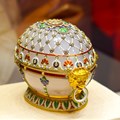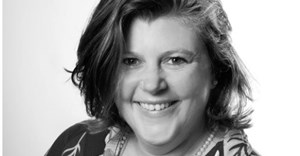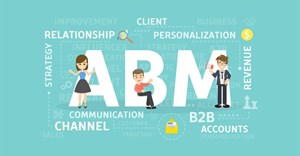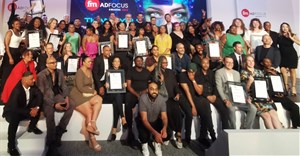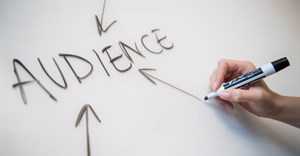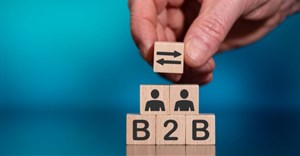Trending
Elections 2024
Jobs
- Studio Account Manager Cape Town
- Inside Sales Representative White River
- Brand Ambassador White River
- Sales Consultant White River
- Communications Manager George
- Print Machine Minder - Intern Edenvale
- Field Sales Representative White River
- Sales Consultant White River
- Outside Sales Representative White River
- Social Media Manager Cape Town
#WomensMonth: Claire Denham-Dyson, 'It's essential that young womxn see this industry as a safe and fruitful space'
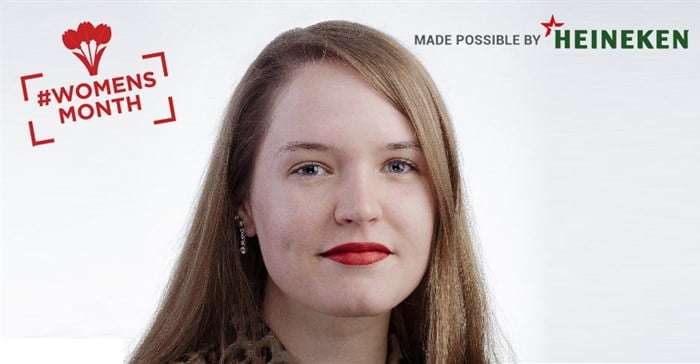
Here, she shares her thoughts on how the future of marketing will benefit from more female leadership and why she thinks it's essential that young *womxn see this industry as a safe and fruitful space where they can be properly remunerated.
How important is anthropology in (B2B) marketing?
Anthropology has become increasingly important, though currently, it's more the philosophy of anthropology (human-centred behavioural science) that has really made people rethink B2B. Overseas, successful B2B marketers are the ones who understand the role that emotion plays. It’s something that Demographica has been saying for a long time, but it is still a big leap in some companies to shift the thinking from B2B = rational to B2B = just as emotional as B2C. That is not to say its not different to B2C – it is. But at the end of the day, it's still people buying from people, and people are driven by their feelings.
Do you feel there is enough of a female voice in the industry that you work in?
I don’t think our industry has enough of a ‘voice’ to begin with. Marketing is often so client-centred, I think we spend a lot of time fighting for the voice of the customer or trying to get out of a supplier-type role in the business. Marketing should be an important stakeholder in a business. The issue in B2B is that often the end customer can be very male-dominated. I still meet with majority male (and often white) decision-makers, who are ultimately our client’s client. That often affects how our clients sees their clients' needs, which can be one-dimensional because there can be a lot of sameness in the client-type. It was alarming to me at first to see how many medium to large businesses are still very male-dominated in decision-making roles.
Do you think the marketing industry (and anthropology) is still too male-dominated or is there significant change in transformation happening?
I know a lot of terrific anthropologists, many of whom are womxn. I also work with a lot of powerful womxn in my own office, and our executive at Demographica is majority womxn-led, which is fantastic. Looking at the broader industry, I still think we have a long way to go. I still see a lot of spaces dominated by male creatives or male ownership. I think I’ve been very lucky to work with a leader who values transformation and inclusivity.
Do you think the future of marketing will benefit from more female leadership?
Of course! If the shift is to become more useful, more meaningful and open to fresh ideas and creativity, marketing will definitely benefit. Marketing is a fantastic career for a creative person looking to hone their craft. I know a lot of womxn who come into the industry but find the lack of boundaries and general ‘panic’ of marketing very frustrating and leave or begin freelancing because they need to get away from the politics and sometimes the toxic masculinity.
I think marketing needs to rethink how it operates from a work-life perspective for the employee. Whether you’re a man, a woman or a non-binary person, some of the expectations from marketing businesses are impossible to meet and cause people a lot of anxiety. Having no boundaries between personal and professional time is over.
We cannot work that way anymore as it's not sustainable for the individual or the business in the long run. It’s a very patriarchal, traditional view of the employee – employee as ‘resource’. There's a long-running anthropological joke that the term human resources is problematic as it reinforces the idea that people are commodities, rather than the actual sentiment, which is about resourcing humans.
What are your personal tips on getting to the top in the marketing industry, specifically as a woman?
I think I’ve suffered from imposter syndrome for as long as I can remember. That’s going to come up every day.
Especially as an anthropologist, it's difficult not to get pushed into the ‘fluffy stuff’ box and forgotten with the rest of the ‘pretty committee’.I think you must be committed to what you are feeling, be dogged that what you feel has value. It's very easy to second guess yourself and ignore your own hunches or intuition. That’s why I think surrounding yourself with a team that gasses you up and makes you feel good is incomparably important.
I would also say – spend time with your leaders. Get to know who they are and what makes them tick. Let them see who you are. Create relationships with them and share your thoughts and feelings. Don’t be afraid of reaching up into the management and executive teams and speaking to the individuals inside them, ask them for their ear. If they won’t or don’t want to listen to you, get out.
What is your hope for the next or future generations of women in marketing/marketing industry?
I really hope that marketing becomes more of a lucrative space for creatives, project managers, strategists, technologists and researchers in this country. It is essential that young womxn see this industry as a safe and fruitful space where they can be properly remunerated. I hope we get womxn and vulnerable or minority communities flooding marketing in the future, creating a space where people can tell real stories and solve real problems while being paid and gaining access to benefits.
And what is your key message to fellow women in marketing this Women’s Month?
Stop apologising and ask for an apology where you feel they are due.
Anything you’d like to add?
I think we are living in the age of uncertainty, where there is so much we don’t know even though we have access to so much information.
There are also so many tiny individual battles every day, in every shape and form, going on in people’s lives, where people are trying to figure out what ‘right’ is and where they belong. People are really tired. Those everyday battles are the ones that I think matter – calling out sexism, homophobia, racism, transphobia, classism, ableism.You won’t always come out on top but getting to know yourself better is the reward at the end of it. It’s also worth remembering that no one is perfect.
Everyone has work to do, so don’t ever think you’re not good enough or that you’ve got one up on someone else. Life is messy. The minute you think you’ve got it figured out, you’ll be reminded that the cycle of life is that of birth, renewal and rebirth – so don’t hold your breath for the right time, the right person, the right feeling. My motto is: take it all in (be present) and then let it all go (be free). Also, eat what you like.
*The ‘x’ in the word women is intended to be more inclusive and to foreground transgender, non-binary, and women of colour.
Connect with Denham-Dyson on LinkedIn and you can click here for her MyBiz profile and thought leaderships. For more on Demographica, visit their website.












